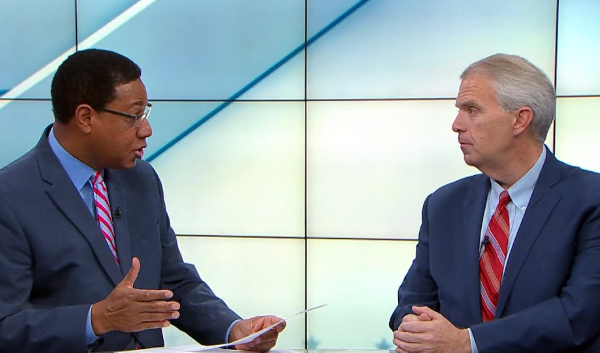It’s not just sports fans who are hungrily looking for news that indicates the NBA, MLB and dare we dream it, the NFL will be coming back to arenas and stadiums relatively soon. Sports reporters and wannabe sports reporters on the job hunt are watching Twitter like those camera operators who manage to follow the ball at a golf tournament.
But in the midst of all this uncertainty. four local TV news managers say that some things haven’t changed. The job of a sports anchor or reporter today is to tell stories. “We don’t just want to see highlights and videos,” says Brad Kessie, WLOX-TV news director in Biloxi, Mississippi. “A great sports reporter is telling a story about the athlete that makes viewers say, ‘Wow, I care.’”
Mark Little, WLBT-TV news director in Jackson, Mississippi, says that all local news anchors and reporters are storytellers for their communities.
“Sports reporting is still our best local connection with engaged audiences,” says Little. He requires his sports reporters to pitch stories in editorial meetings and asks them, “Why should a non-sports fan care about that story?”
That approach plays out in many newsrooms, including at WTVA-TV in Tupelo, Mississippi.
“You are trying to appeal to a broader audience. Not only are you telling a good story, but you need to be concise about it,” says Craig Ford, assistant news director.
Sports reporting for local TV newscasts has been evolving for decades. Much of it has moved online or to social media. Those in the hunt for a relatively small number of sports reporting jobs should take that to heart and avoid loading up their reels with play-by-play and box scores.
“We’re in the on-demand era, so we don’t have to wait for sports segments anymore,” says Shawn Reynolds, group news director of Waypoint Media. “Sports anchors are expected to have the highlights, but what can they report that is different?”
Kessie agrees and urges sports job seekers to show they understand the importance of social media, in particular, “If you don’t adapt, you get left behind.”
Our experts suggest that sports reporters ask two key questions as they approach a story.
- Is there anything particularly unique about the subject matter?
- Is there a nontraditional route the story could take?
“Local TV sports are not going anywhere,” Ford says. “The goal is just to make it more appealing to more people.”
As live sports come back, so will more sports coverage in newscasts. Local TV sports anchors and reporters can use this as an opportunity to reinvent their sports segments and their own reporting. If they don’t, Reynold’s has a warning and a solution.
“Viewers will tune out if they’ve already seen your content. Ask yourself, how can you find the story behind the content that will keep a viewer’s attention?”
Our experts shared their views during the Mississippi Association of Broadcasters Day at the University of Mississippi.








